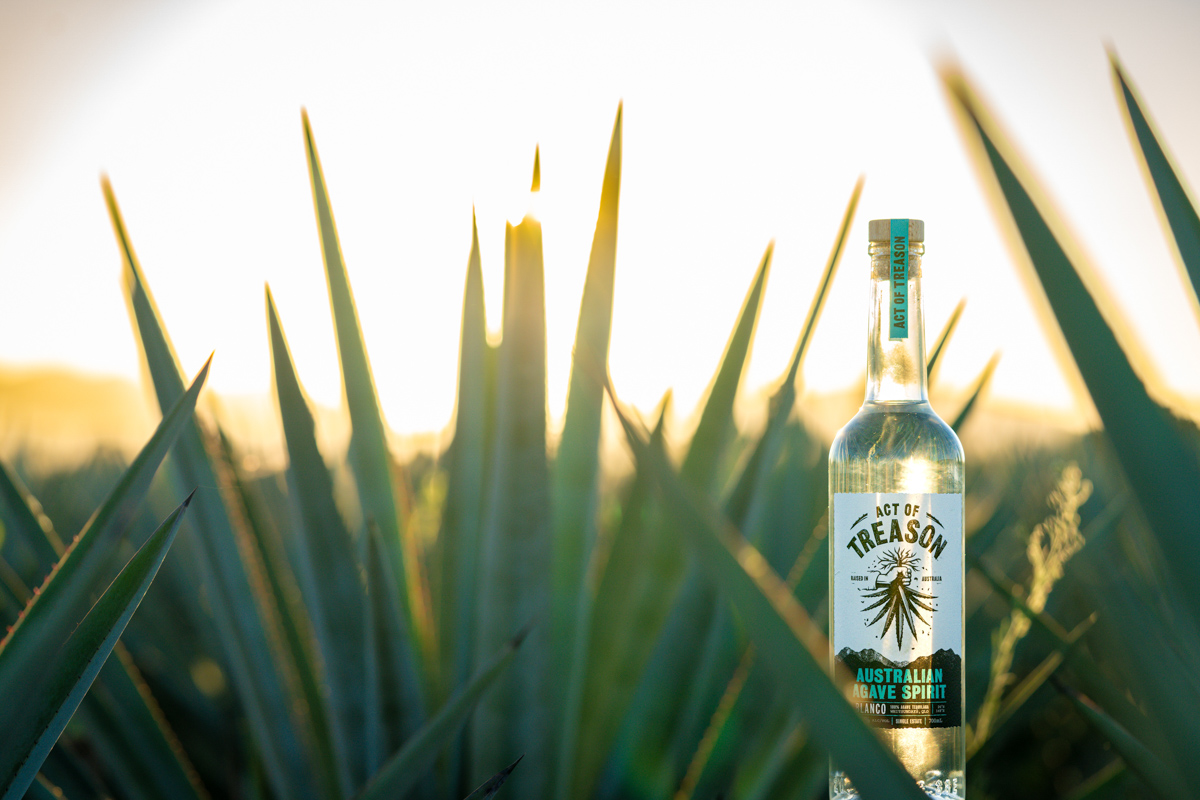Tequila fans curious about what an Australian version of the famous drink tastes like can now purchase the Act of Treason agave spirit, which incorporates University of Adelaide research.
Produced by Australian distillers Top Shelf International (TSI), Act of Treason is a spirit made exclusively from Agave tequilana grown on the Eden Lassie farm near Airlie Beach in Queensland.
It features notes of citrus, cut grass and lime peel on the nose, with a long finish of agave and grapefruit on the palate.
The drink is the product of University of Adelaide research, funded by a three-year ARC Linkage grant which began in 2020.
“TSI set out to improve their production process and better understand the unique potential of Australian agave, while integrating sustainable farming practices and uncovering its regional flavour profile,” says Professor Rachel Burton, from the University of Adelaide’s School of Agriculture, Food and Wine, who led the project.
“The combined efforts of the University of Adelaide and TSI are centred on better understanding agave plant growth and exploring sustainable agave farming techniques.”
Eden Lassie’s farm was selected for its alignment with the 20° South latitude, a geographical position which mirrors the famous tequila-producing region of Jalisco, Mexico, which sits at 20° North latitude.
The site features a comparable climate to that of Jalisco, fostering ideal growing conditions for the Agave tequilana, which thrives in full sunlight with many hours of sun exposure each day.
“Preliminary laboratory tests using spectroscopy on agave spirits revealed regional differences, akin to what can be observed in wine,” says the University of Adelaide’s Dr Juanita Lauer, who contributed to the project.
“It is known from research in viticulture that factors like altitude, soil type, and local climate conditions play pivotal roles in the taste of the end product, and our collaborative endeavour aims to shed light on these intricacies for agave spirits.”
The collaborative research is not solely focussed on what’s in the bottle; TSI and the University of Adelaide are also seeking a better understanding of agave plant growth and exploring sustainable agave farming techniques.
“In a field trial, different ground covers and microbial inoculants are being examined to understand their effect on soil health and to reduce fertiliser input,” says Dr Matthias Salomon from the University’s School of Agriculture Food and Wine, who was part of the research team.
“Preliminary research indicates that mulch derived from agave leaves provides distinct benefits for plants and performs better than other more commonly used mulch materials.
“Apart from aiding plant growth, this mulch appears to positively impact soil health, with data suggesting that agave mulch can help increase soil pH, making it a potential amendment for restoring acidic soils.”
Researchers are also investigating agave’s potential for long-term carbon sequestration and its positive effects on nutrient absorption in soil.
“As this research continues, we will learn more about how to create a drink with a distinctive Australian touch and how agave plants can be used to improve soil health and sustainability in Australia’s agricultural landscape,” says Professor Burton.

Photo credit: Top Shelf International
Media Contact:
Dr Matthias Salomon, Post-doctoral researcher, School of Agriculture, Food and Wine, University of Adelaide. Email: matthias.salomon@adelaide.edu.au
Johnny von Einem, Media Coordinator, The University of Adelaide. Mobile: +61 0430 476 300 Email: johnny.voneinem@adelaide.edu.au
